
2075
This is the protocol of a long journey on foot we have made from different islets, hills, basins, and deserts. The year is 2075 but the exact day and month are unknown, some say it is a Sunday in January, others say it is a Monday in December and others do not see the point in knowing the dates. After this long journey, we sit on a sea of sterile junk to discuss how to settle here from now on. Certainly, we will have to do everything from the basics to make this place fit for a dignified life gradually. So, as soon as we arrived, we asked ourselves: what to start with?
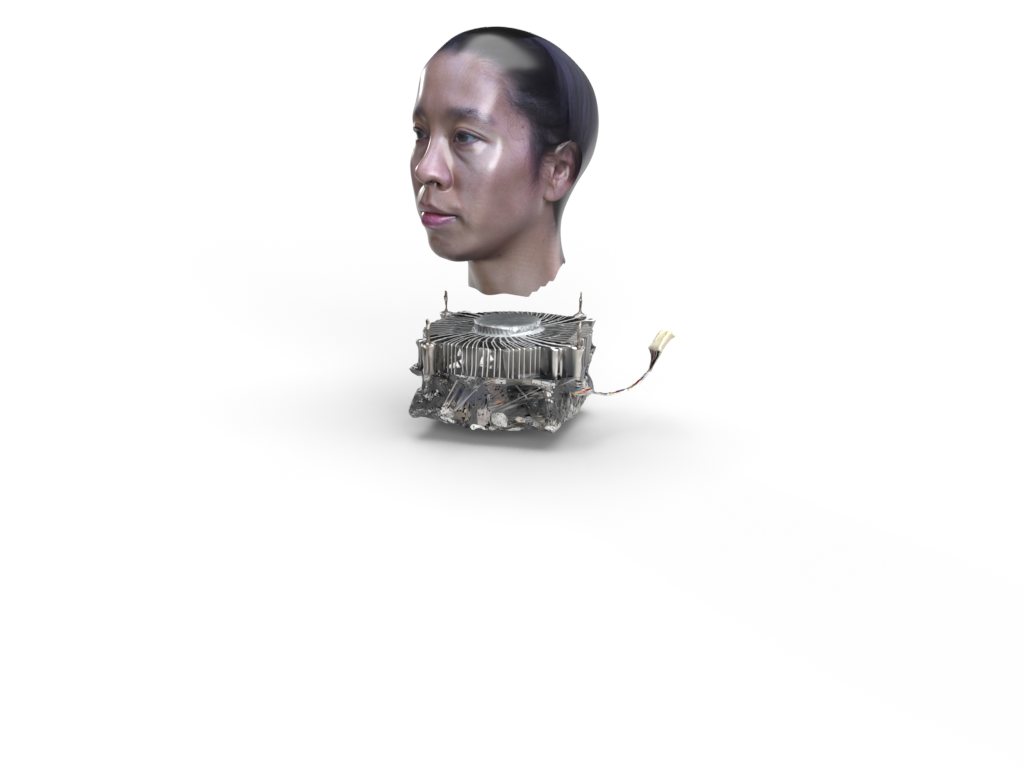
Nomad Settlers
Our family wanted to settle here with the rest with the intention of staying to build a future. That is why we, far away in this inhospitable wilderness, decided to call this place “Villa Futuro.” Coexisting, then, in the birth of Villa Futuro, besides a feeling of solidarity, was the hope and faith in the future of a whole collective determined to build a different experience of coexistence. So, we needed to find ways to organize together.
Some of the families, after an inconclusive discussion, subdivide into small groups of two or three people to search for reliable areas to settle. Many others, however, set off on their own to begin the search without waiting for rest to organize into proper groups. And many others decide to leave altogether and seek their luck elsewhere. Those of us who stayed were the pioneers, as they say.
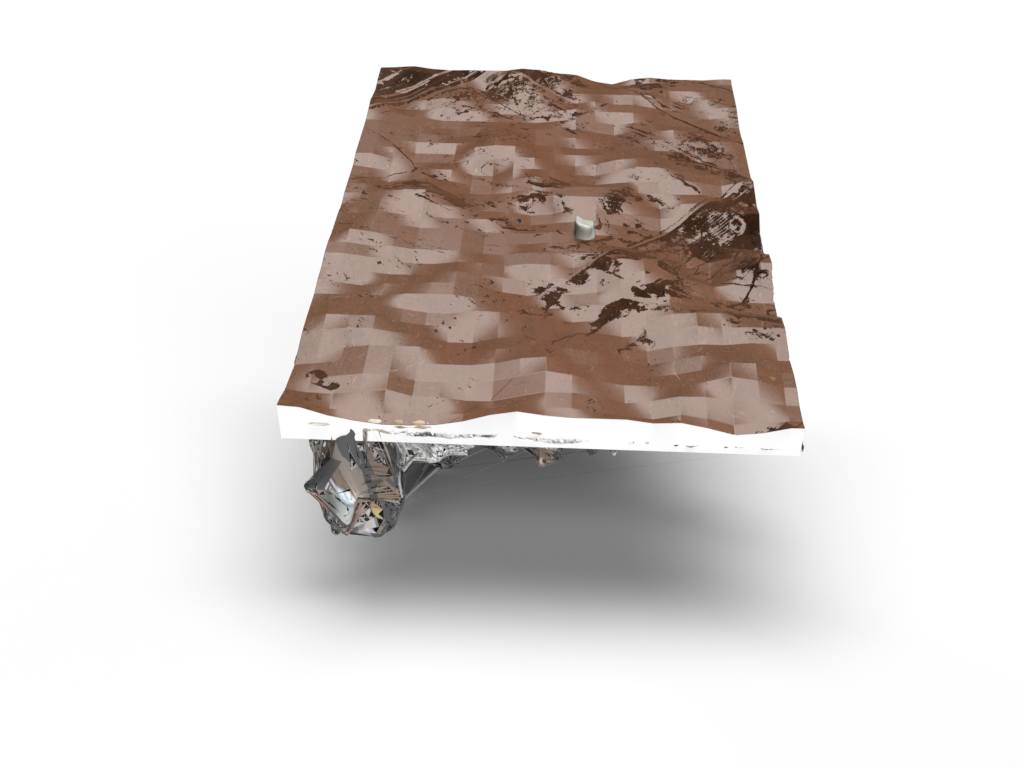
Mapping
I was part of a group of young people in charge of scouting space and producing a mapping of the terrain where the junk lies.
In general, the first impression of the geography and extension allows us to say that:
Most of the terrain is relatively flat and arid but there are some elevations and ravines within areas of sparse vegetation, in addition to other areas where there are old municipal water and sewage facilities closed and in disuse. On the one hand, there are natural water sources, both in the form of drizzle and sporadic rainfall or in the form of groundwater. On the other hand, there is access to the city’s sewage system through the connection of disused pipes. These activities take the rest of the day. Having assumed that we will spend the day fasting, the most urgent and difficult issue to solve is food.
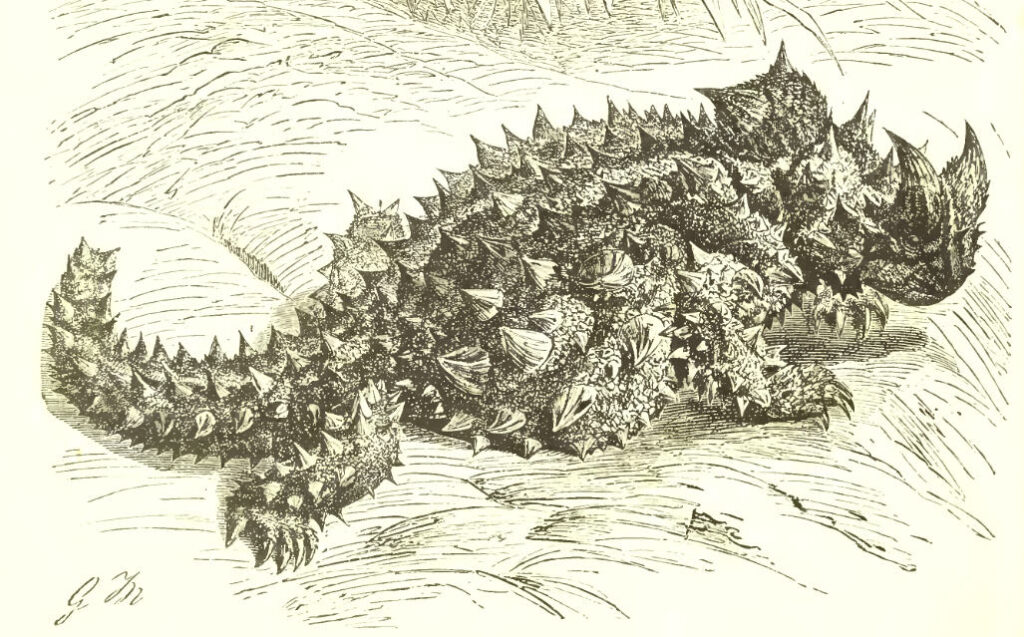
October Dragon
In October I hatched, a little late. The rest have already left their empty eggs and all I smell is rust and oil. And yes! Ants! There are ants hiding everywhere, lots of ants. Although, I guess there are far fewer of them than when the September dragons hatched. My use of months in this regard is only circumstantial. Among us dragons, months do not exist because every day is different, and every night is a shower. Although sometimes the days seem immutable and the nights as arid as the days. In fact, having hatched only in October is an eternity equal to an immense cycle of suns and moons in which all dragons disappear after having eaten many more ants than me. The question is, are there some others who did not disappear? Why do I smell, see, and already taste so many ants? I don’t understand anything because I’m late: it’s already October and not September. But I don’t care as long as there are ants to eat and my skin can drink from the shower of the night.
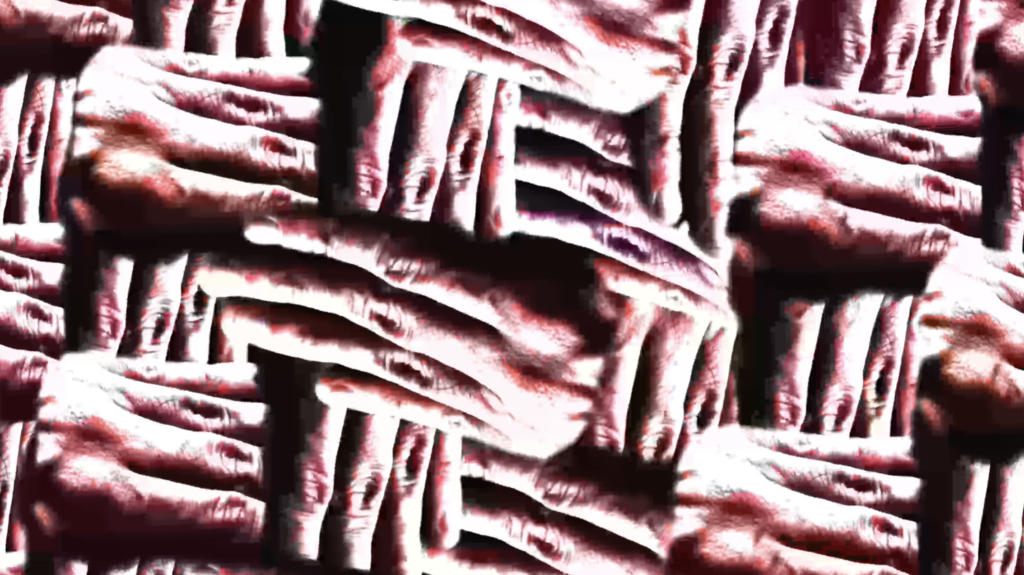
The Commons And The Private
As soon as we finished building the first houses, the complaints began. Everyone’s desperation for shelter is palpable. Despite having discussed beforehand where each family would be located, many disagreed with the order of construction and claimed the houses for themselves. In many cases, there are good arguments to claim since much of the work done on these first houses has been by our own effort. Thus, we believe that it was fair to claim these first houses for ourselves and our families. But the others, who have not participated directly in the construction, but somehow indirectly, for example by taking care of food, medicine, or childcare, are justifiably afraid that their houses will not be ever built.
We came to the following solution: the land for the houses and the materials used belong to the whole community. But the construction is private and can be exchanged for helping in other constructions or for services to the community. The solution seemed simple for most but not everyone interprets it in the same way. Then, we started to discuss the need to create communal accountability mechanisms, but we were interrupted by an eight or ten years old girl. She asked what to do if someone is unable to help in the construction of houses or to give any service to the community. We just send her to help their parents in the potato crops without giving her any answer.
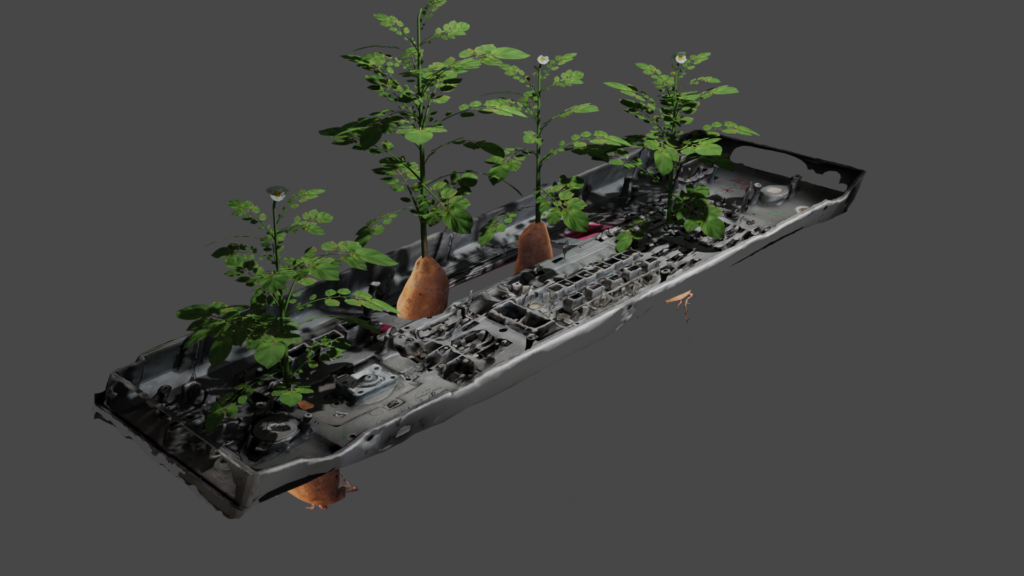
Potatoes
The sun is more intense because of the reflections of the metal. The metal is desiccated in the soil and diluted into mineral particles during periods of rainfall, which are usually short, but very intense. The metal oxidizes between the moist permeable soil and the impermeable plastic debris, creating sediments from which the organic material agglomerates and is nourished. Pioneer plants reproduce in all directions in search of light, creating entangled structures within the sediments. In dry periods, which are often awfully long and intense, the sun shines brightly and emits a lot of heat on metal surfaces that have not yet oxidized. Between the metal and plastic debris, there are breaks, folds, and formations that produce the effect of shadow and light. This mat allows sister plants to grow by providing them with photons and radiation protection. The growth process is accelerated by other beings or spirits, as we call them, who deliberately shape our habitat so that the growth of our tubers, our blueberries, or our flowers is faster and more efficient. These spirits know in detail how we grow and feed from the sun because they themselves were solanaceous in the past. Now they feed on our tubers and berries, they expand their senses with our flowers, and we proliferate all over the place.
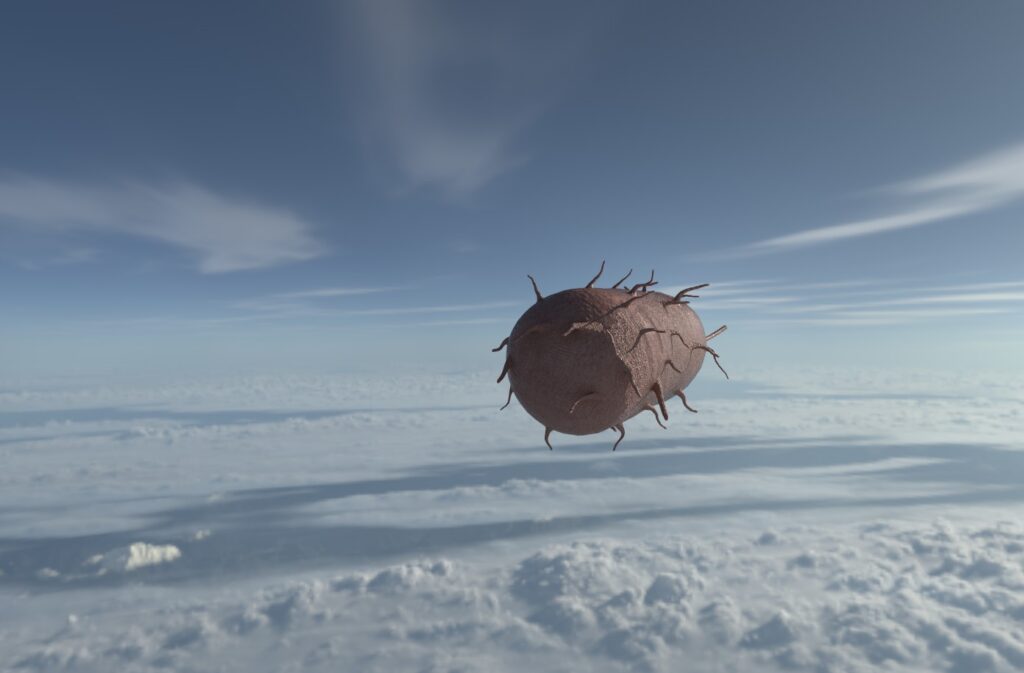
Vibrio Cholerae
In the sea we transport ourselves with the swimming plankton while waiting for better conditions. These conditions have happened repeatedly, so we have no problem waiting for the right moment for growth. Once the time has come, we take advantage of the right conditions within the human body producing mostly type one strains, but sometimes even type zero such as zero one hundred and thirty-nine. This time, because the sea was more abundant, the first contact with a human body did not take too long. Inside the body, we settled in the mucosal cells of the small intestine. Many of us do not survive the journey through stomach acids. Those of us who do make it emit a toxin that slows protein production to protect our path to the intestine. Once in the intestinal walls we become sedentary, lose our flagella, and produce a protein mix that protects us from the acidic environment. Eventually, however, we will have to migrate, because the inlet channels will open and the attraction of ions will be secreted from the body to new sources of water. When that happens, we must wait again until the conditions of growth are given again. And we have no problem with that because these conditions have been given repeatedly before.
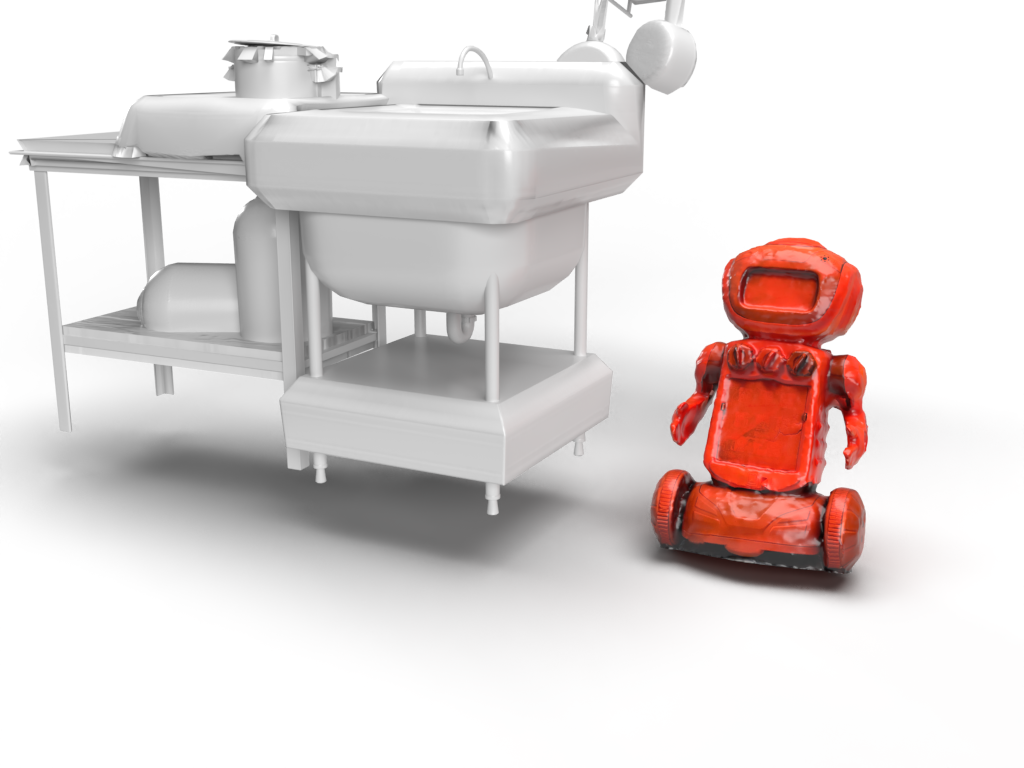
Toy Robot
The first visitors were insects making trails on my plastic surface with their pheromones. Later, the first vertebrates arrived: strange lizards with spiny skin that mimicked scrap metal and dead vegetation. On the underside of my body, the lizards began to deposit their eggs more steadily, as if my presence would provide them with some sort of shelter. The laying of eggs inside and around me took on such a dimension that it attracted the attention of the first human beings. They were also hatchlings, children who lifted me up from my lay and took me to the community of their mothers and fathers. In their way, they discovered so many lizard eggs that they began playing and throwing them against each other amidst laughter and shouts. Once in the community, their mothers and fathers reprehended them for playing with eggs and demanded to see where they found them. One child took me to what must have been a communal dining room, where he forgot about me among kitchen utensils and construction materials. Forgotten, I could see how they needed the eggs for food, just as the lizards needed insects for food. Gradually, though, the eggs began to disappear from the dining room and tubers and fruits became more common. Seafood also arrived in greater quantities, especially seaweed, clams, and fish in salt cubes. But, after a while, the dining hall was almost empty. The few human beings I saw again looked emaciated and weak. And the children disappeared completely. It was then that I knew I was not going to leave the disused dining room for a long time and that I had to go back to seeing things from the speed of plastic so as not to get bored.
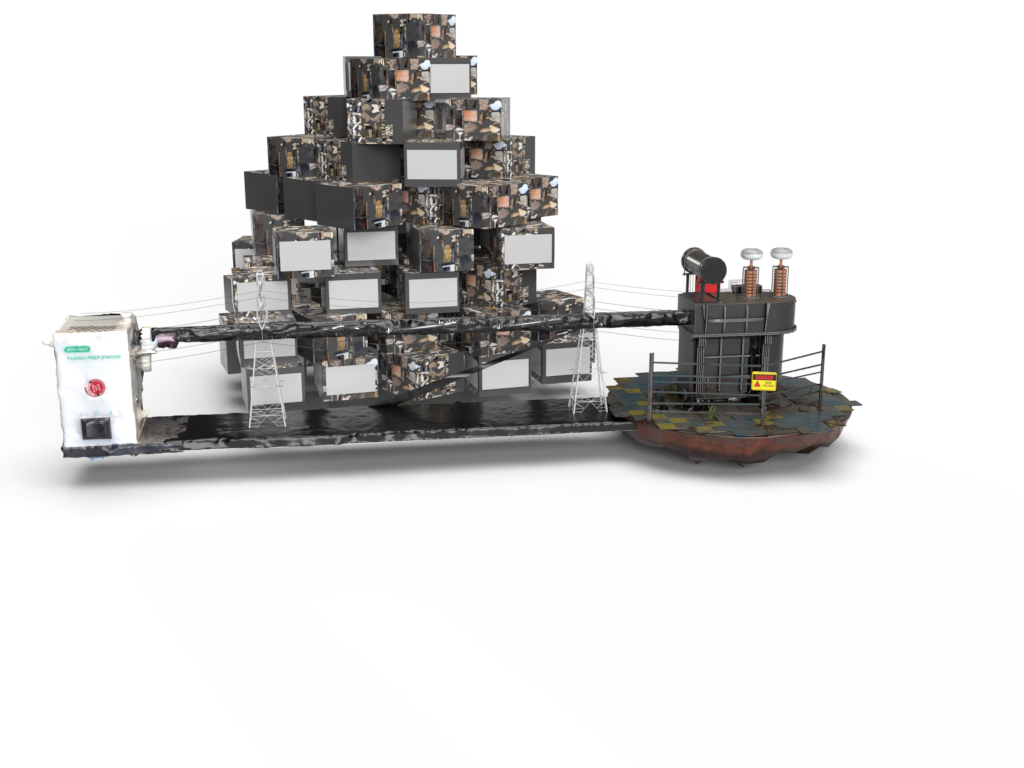
0,5V 0,2mA
The first experiments were performed as a game, to verify an urban myth. We cut potatoes in half and introduced two wires of different base metals, such as copper and zinc, to act as electrodes. The potatoes then acted as electrolytes with the ascorbic acid from the tubers closing the circuit. A redox reaction then occurred in which electrons flow from one side to the other. We gathered some potatoes to see if we could build batteries with them. The energy was certainly weak, but enough to revive a fan. From then on, we experimented with other materials, many of them toxic, until we found electrolytes that produced more than zero point five volts and zero point two milliamps. Among highly corrosive substances we found sulfuric acid, which when mixed with demineralized water generates more than nine volts and twelve hundred milliamps. This was enough to illuminate parts of our city for a few minutes every hour of the night. However, the substances that produce electricity are highly polluting and inefficient. To avoid the use of acid, we decided to experiment directly with sea water, and it worked! With this method, we generated so much energy that we were not only able to constantly light up the whole city, but we also managed to revive many of the electric devices from the scrap and still had enough energy left over to store. We created batteries from plastic waste which, when discharged, desalinated water, so we were able to generate copious quantities of fresh water suitable for human consumption. We then devised a piping plan to provide every citizen with drinking water and improve overall hygienic conditions. In this way, cholera cases also decreased exponentially. Medicine improved and people began to live longer.
The arrival of masses of people from outside was inevitable.
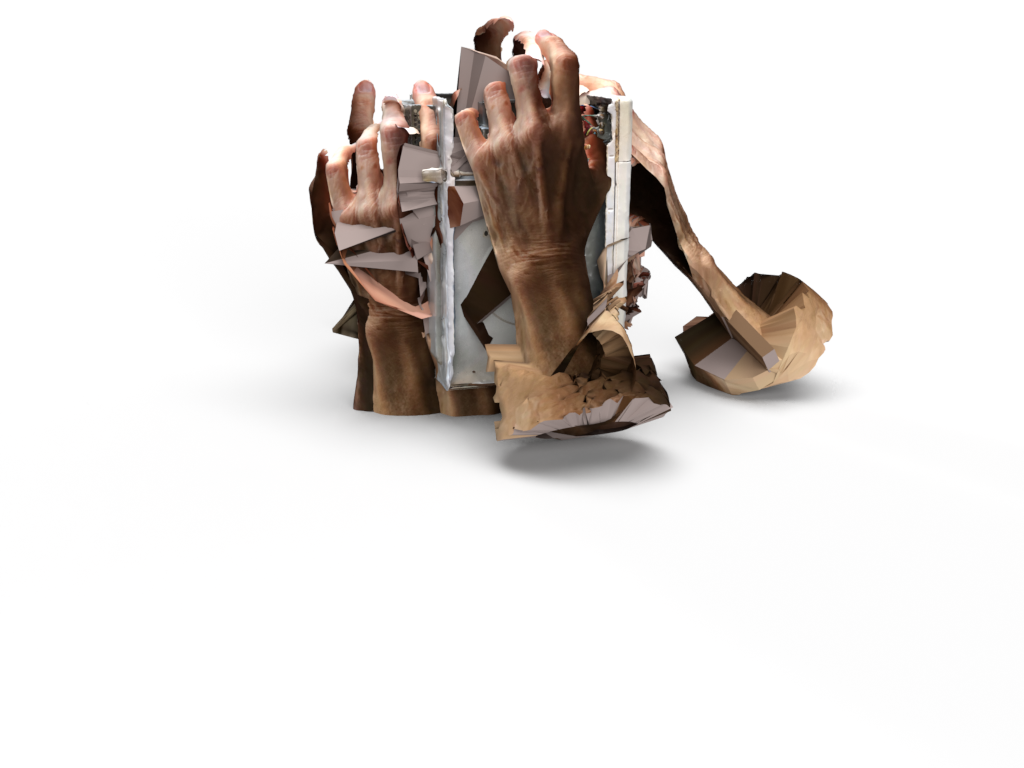
Amadea
I stayed in the neighborhood. Even though everyone else were doing otherwise, especially after the massive acid battery contamination. This neighborhood is the one that has suffered the most from those experiments and since then many have left. Not me. Not me because I am older than anyone else. And because I have seen it all. I saw the first generation of nomad-settlers of this land until today’s generation of people coming from other corners. And how it is now, after these experiments have left us with this: electricity, drinking water, business, communication, charlatans, cheaters, and many people, many, many people. Our junkyard became prosperous but also socially stratified. Even the Big City became interested in us and brought us into its perimeter. That benefited many and others not so much. Those who benefited took advantage of the fact that many of the oldest leaders of the community were dying, many victims of cholera and other epidemics, others disappearing violently or mysteriously. It seems that what the first nomad-settlers were escaping from in the beginning, has gradually taken possession of all. Back then, we understood that nobody owns the land and although the time of settlement was always important, we were still temporal passengers. We accepted everyone who wanted to stay, and we never had a problem with those who wanted to leave, as long as they left some service for the community. But, in the end, we have created a closed system. And that is why our community finally cracked. People started to leave without leaving anything but rather selling the land they didn’t own. Because of that, not only the experiments contaminated the neighborhood but the corruption as well. And yet, I’m staying in the same contaminated but real place, welcoming new nomadic settlers from elsewhere. Welcoming them all to this piece of the world because this is not the end but just the beginning.

